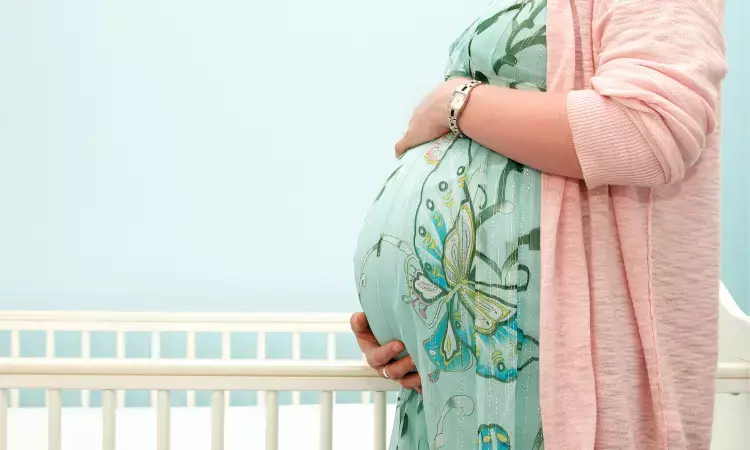- Home
- Medical news & Guidelines
- Anesthesiology
- Cardiology and CTVS
- Critical Care
- Dentistry
- Dermatology
- Diabetes and Endocrinology
- ENT
- Gastroenterology
- Medicine
- Nephrology
- Neurology
- Obstretics-Gynaecology
- Oncology
- Ophthalmology
- Orthopaedics
- Pediatrics-Neonatology
- Psychiatry
- Pulmonology
- Radiology
- Surgery
- Urology
- Laboratory Medicine
- Diet
- Nursing
- Paramedical
- Physiotherapy
- Health news
- Fact Check
- Bone Health Fact Check
- Brain Health Fact Check
- Cancer Related Fact Check
- Child Care Fact Check
- Dental and oral health fact check
- Diabetes and metabolic health fact check
- Diet and Nutrition Fact Check
- Eye and ENT Care Fact Check
- Fitness fact check
- Gut health fact check
- Heart health fact check
- Kidney health fact check
- Medical education fact check
- Men's health fact check
- Respiratory fact check
- Skin and hair care fact check
- Vaccine and Immunization fact check
- Women's health fact check
- AYUSH
- State News
- Andaman and Nicobar Islands
- Andhra Pradesh
- Arunachal Pradesh
- Assam
- Bihar
- Chandigarh
- Chattisgarh
- Dadra and Nagar Haveli
- Daman and Diu
- Delhi
- Goa
- Gujarat
- Haryana
- Himachal Pradesh
- Jammu & Kashmir
- Jharkhand
- Karnataka
- Kerala
- Ladakh
- Lakshadweep
- Madhya Pradesh
- Maharashtra
- Manipur
- Meghalaya
- Mizoram
- Nagaland
- Odisha
- Puducherry
- Punjab
- Rajasthan
- Sikkim
- Tamil Nadu
- Telangana
- Tripura
- Uttar Pradesh
- Uttrakhand
- West Bengal
- Medical Education
- Industry
Obesity in pregnancy may increase risk of lifelong CVD in offsprings

Maternal obesity impairs heart health and function of the foetus according to a new study in mice. The study, published in The Journal of Physiology found that maternal obesity causes molecular changes in the heart of the foetus and alters expression of genes related to nutrient metabolism, which greatly increases offspring's risk of cardiac problems in later life.
This is the first study to show that the heart is 'programmed' by the nutrients it receives in foetal life. Changes in the expression of genes alter how the heart normally metabolises carbohydrates and fats. They shift the heart's nutrient preference further toward fat and away from sugar. As a result, the hearts of fetuses of obese female mice were larger, weighed more, had thicker walls and showed signs of inflammation. This impairs how efficiently the heart contracts and pumps blood around the body.
The researchers from University of Colorado, US, used a mouse model that replicates human maternal physiology and placental nutrient transport in obese women. Female mice (n=31) were fed a diet with a high fat content together with a sugary drink, which is equivalent to a human regularly consuming a burger, chips and a fizzy drink (1500kcal). The female mice ate this diet until they developed obesity, putting on about 25% of their original body weight. 50 female mice were fed a control diet.
Mouse pups (n=187) were studied in utero, as well as after birth at 3, 6, 9 and 24 months using imaging techniques, including echocardiography and positron emission tomography (PET) scans. Researchers analysed genes, proteins and mitochondria of the offspring.
The changes in offspring cardiac metabolism strongly depended on sex. The expression of 841 genes were altered in the hearts of female foetuses and 764 genes were altered in male foetuses, but less than 10% genes were commonly altered in both sexes. Interestingly, although both male and female offspring from mothers with obesity had impaired cardiac function, there were differences in the progression between sexes; males were impaired from the start, whereas females' cardiac function got progressively worse with age.
The sex-difference in the lasting impairments of cardiovascular health and function could be due to oestrogen. Higher levels in young females may protect cardiovascular health, the protection diminishes as oestrogen levels deplete as the females age. The molecular cause for the sex difference is not yet understood.
Lead author, Dr Owen Vaughan, University of Colorado, US said:
"Our research indicates a mechanism linking maternal obesity with cardiometabolic illness in the next generation. This is important because obesity is increasing rapidly in the human population and affects almost one third of women of childbearing age. By improving our understanding of the mechanisms involved, this research paves the way for treatments that could be used in early life to prevent later-life cardiometabolic illnesses, which are costly for health services and affect many people's quality of life. For example, we could offer more tailored advice on nutrition to mothers or children based on their body mass index or sex, or develop new drugs that target metabolism in the heart of the foetus."
Mice have shorter pregnancies, more offspring and different diets to humans so further studies in human volunteers would be required to extrapolate the findings to women's health. Loss-of-function studies also need to be carried out to prove this mechanism linking maternal obesity and offspring heart function and pinpoint the exact molecules responsible.
For further information, check out the following link:
Dr Kamal Kant Kohli-MBBS, DTCD- a chest specialist with more than 30 years of practice and a flair for writing clinical articles, Dr Kamal Kant Kohli joined Medical Dialogues as a Chief Editor of Medical News. Besides writing articles, as an editor, he proofreads and verifies all the medical content published on Medical Dialogues including those coming from journals, studies,medical conferences,guidelines etc. Email: drkohli@medicaldialogues.in. Contact no. 011-43720751


